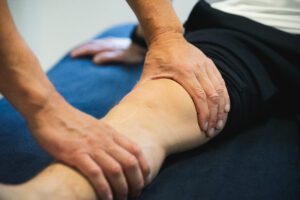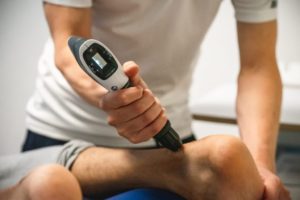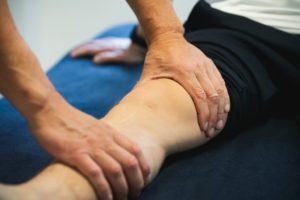How important is sleep for muscle growth?
When it comes to building muscle, rest is the most underrated factor,' says British exercise scientist and strength coach Ian Mellis. 'Most men who want to build muscle have the idea that they have to train as much as possible. And that's not true.' Physiologists can explain in detail why that idea is wrong. Training stimulates muscle growth, but your diet and hormones determine how well your body responds to that training stimulus. Two crucial hormones that determine muscle building are testosterone and growth hormone, and both hormones are produced mainly when you sleep. The better and more you sleep, the more testosterone and growth hormone circulate in your body. Conversely, if you sleep poorly or too little, your production of these hormones will plummet. For example, researchers from the National University of Singapore have calculated that for every extra hour you sleep, your testosterone level increases by 13 percent.Does Lack of Sleep Affect Muscle Growth?
Sleep deprivation will cause the amount of anabolic hormones to decrease, and the amount of catabolic hormones to increase. This will cause muscle loss, less muscle building during hard training and a poorer recovery capacity after training. It is estimated that with sleep deprivation you need about twice as much time to recover after a heavy training.How Much Sleep Is Needed for Muscle Growth?
The average adult needs about 7-9 hours of sleep each night. And that’s especially true if you’re looking to build muscle mass or change your body composition. A good night’s sleep before and after each workout will ensure you get the full benefit of your efforts. Is six hours of sleep enough to build muscle? Not really. If you struggle to get a solid seven hours of sleep on a regular basis, it’s time to prioritize your sleep. Try some of the recommendations below to get more sleep.Sleep deprivation and sports injuries
Research has shown that the less athletes sleep, the greater the chance of injury. Athletes who sleep 5 hours a day versus athletes who sleep 9 hours a day have almost 60% more chance of injury during a season. And we all know: an injury means downtime and therefore no progression. This means that you could train perfectly for an entire period and make all possible progress, but if you sleep less than 6 hours the day before a competition that requires fitness, you will never be able to go to maximum. Again, this of course also applies to strength training; with strength training too, we see fatigue build up over time; the later sets in your workout become less efficient for this reason; muscle control runs less smoothly and fatigue accumulates. More sleep can have very positive effects on this, making your training more efficient, which in turn leads to potentially more progression. We are constantly developing new training methods, better periodizations, better exercises and equipment, new supplements, optimal timing of nutrition, better skates or swimsuits, better soccer shoes, better handles for a cable rack, better lifter shoes, … some of these effects will hardly be significant on their own, but those few percent gains can make the difference between you and your competition. One of the best proven legal supplements, creatine, can give a 5 to 10% boost; so realize how huge 20 to 30 % is…The effect of exercise on mood during the night
Sports improve mood and can thus have a positive effect on sleep. Regular sports reduce REM sleep which in the long run has an antidepressant effect. The effect of sports on mood and also on sleep is via an increase in brain-derived neurotrphic factor (BDNF).Tips and tricks to sleep more and better:
- Aim for about 8 hours of sleep per night.
- Make sure you have good blackout curtains.
- To sleep well, it is important not to have too many stimuli around you in the last half hour before going to sleep, so be careful with screens and noise.
- Be careful with coffee. The half-life (how long it takes for half of the caffeine to leave your system) is on average 6 hours. So if you drink a lot of coffee in the morning, you will probably still have a lot of caffeine in your blood in the evening. Some people can tolerate this much better than others.
- Be careful with big fluctuations in your weekly rhythm. Many people have a completely different rhythm in the weekend than during the week. This can cause you to sleep badly from Sunday to Monday, which means you start your week with a sleep deficit.
- Provide fresh air in the bedroom.
- Alcohol has a stimulating effect. Although it makes you drowsy at first, you get a boost after a few hours. Many people sleep badly when they drink (too much) alcohol.
- Don't eat heavy meals late at night.
- Worrying and stress. Write down what is bothering you (on a notepad) so that it is out of your head.











